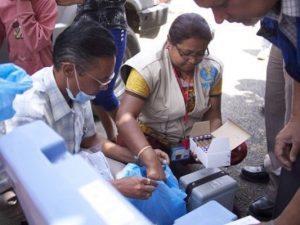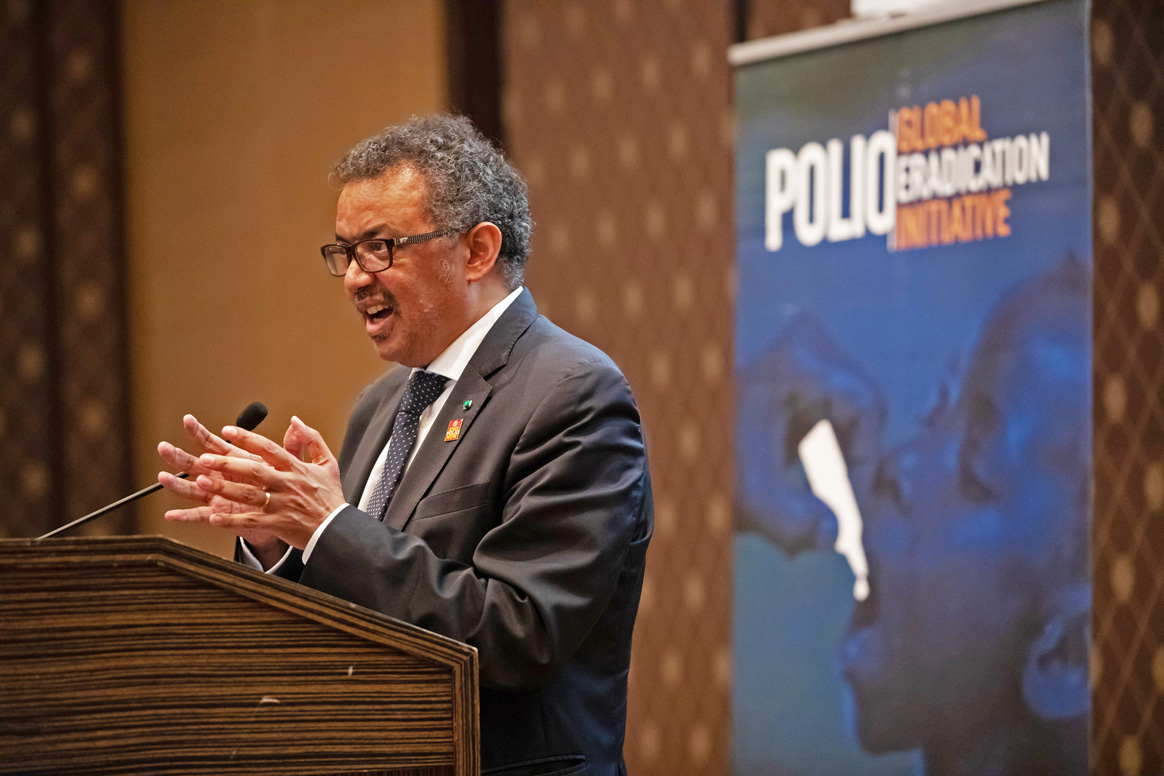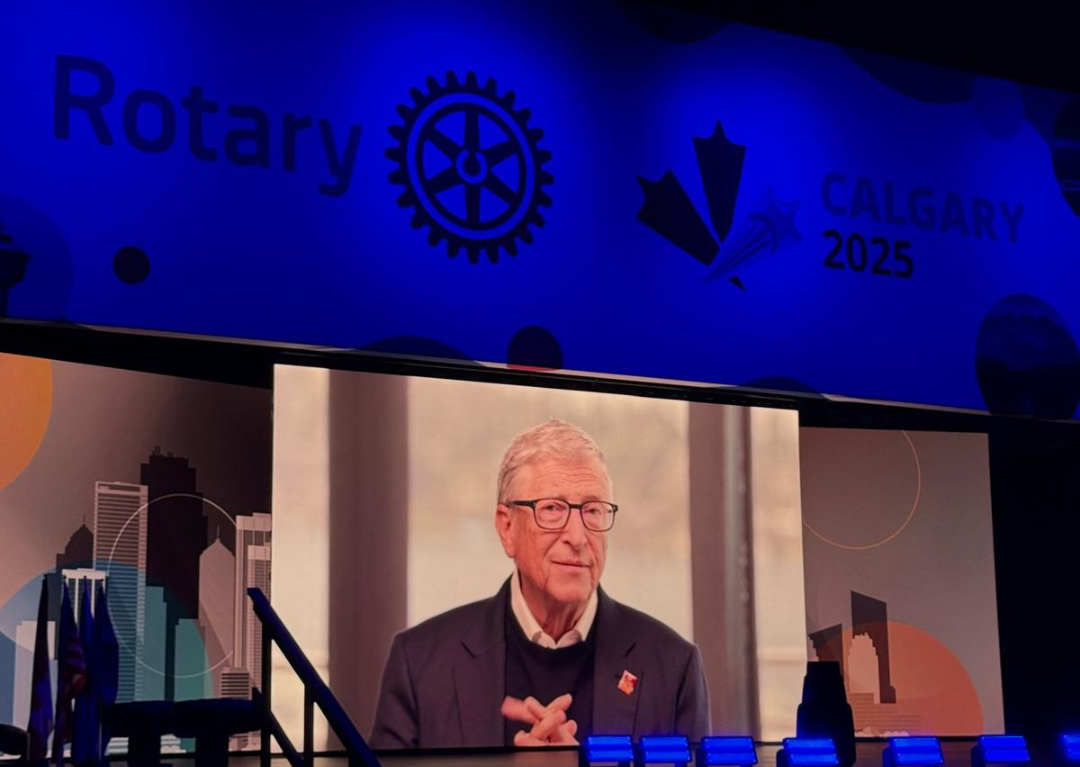
Polio staff and infrastructure are assisting emergency relief efforts following the devastating earthquake in Nepal on 25 April. Polio staff from the country have been deployed to help conduct rapid assessments of the most urgent needs.
In the aftermath of an earthquake, a rise in infectious disease poses a threat to people living with weakened or destroyed sanitation and health systems. Polio staff from both the World Health Organization (WHO) and UNICEF are supporting the Ministry of Health in planning, implementing and monitoring vaccination campaigns for measles and rubella in the affected areas. At the same time, staff are gearing up surveillance capacity, to actively look for communicable diseases, including cholera.
The drive to eradicate polio has always been about more than polio alone. The polio network routinely conducts surveillance for other diseases of public health importance, including measles, yellow fever, neonatal tetanus and avian influence. With local knowledge of communities, health systems and government structures, the polio network’s technical capacity in disease surveillance and planning of large-scale operations often helps sustain international and national relief efforts.
The extensive polio eradication network at country-level has proved itself repeatedly to be uniquely equipped to provide immediate support during emergencies or other disease outbreaks. Following the October 2005 earthquake on the Pakistan-India border areas, more than 50 medical officers from the Pakistani polio eradication programme arrived within a day after the earthquake, equipped with vaccines, medications, potable water and sleeping bags, in addition to critical logistics support such as 15 vehicles and radio and satellite equipment. The medical officers conducted the initial rapid assessment of the disaster and communicated their observations to the capital to allow effective relief planning. They also provided emergency medical care during the following days, setting up treatment camps and transporting patients, while planning and implementing mass vaccination campaigns against measles, polio and tetanus.
In the days and weeks immediately following the Indian Ocean tsunami in December
2004, more than 20 polio staff were deployed by the government of India to the worst-affected areas of southern India to cope with health needs. At headquarters level, polio staff were immediately involved in resource mobilisation and staff coordination activities. In affected countries, polio staff arrived on the scene equipped with vehicles and medicines, including oral rehydration salts and co-trimoxazole paediatric tablets to help prevent deaths due to pneumonia. Polio staff also organised and helped implement large-scale, preventive immunisation campaigns, reaching more than 150,000 children with measles and polio vaccine, as well as Vitamin A supplements.
Similar support was given during the Sahel drought in 2013 and the Horn of Africa drought in 2011-2012, and is currently being provided to the Ebola outbreak response across western Africa.
Polio staff at country level spend, on average, 50% of their time working on broader public health efforts, over and beyond polio eradication. They provide a critical contribution to strengthening health systems.
Ensuring that the infrastructure built up to eradicate polio continues to support broader health services, even after the disease has been eradicated, is now one of the highest priorities for the programme. An extensive ‘legacy planning’ process is underway with partners and governments to ensure that the experience and expertise of polio staff continue to support people in the aftermath of emergencies, such as Nepal.


